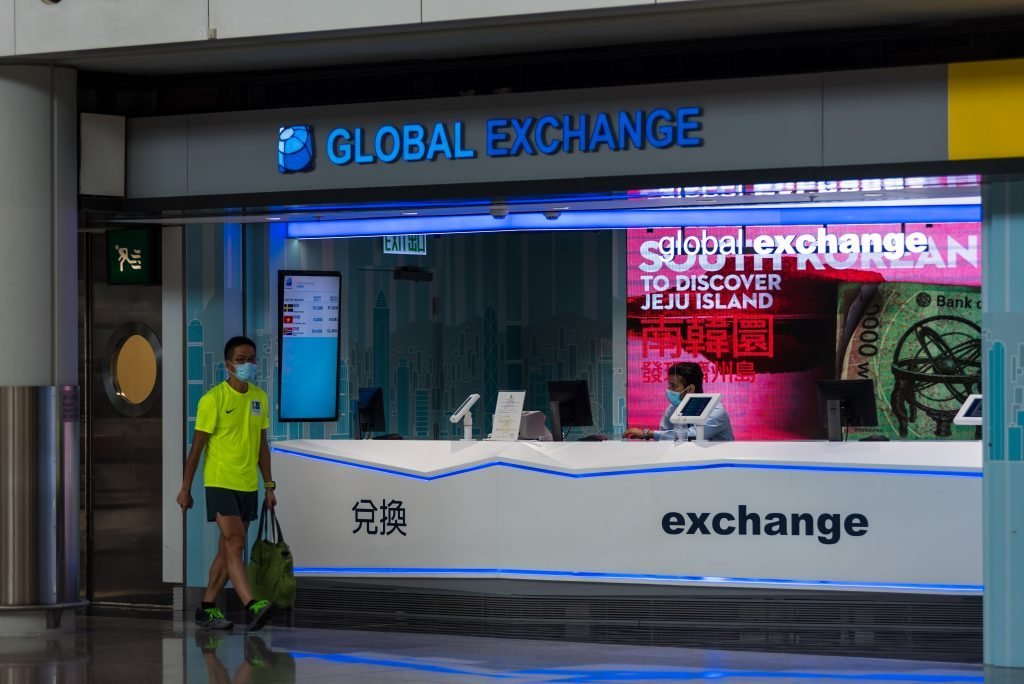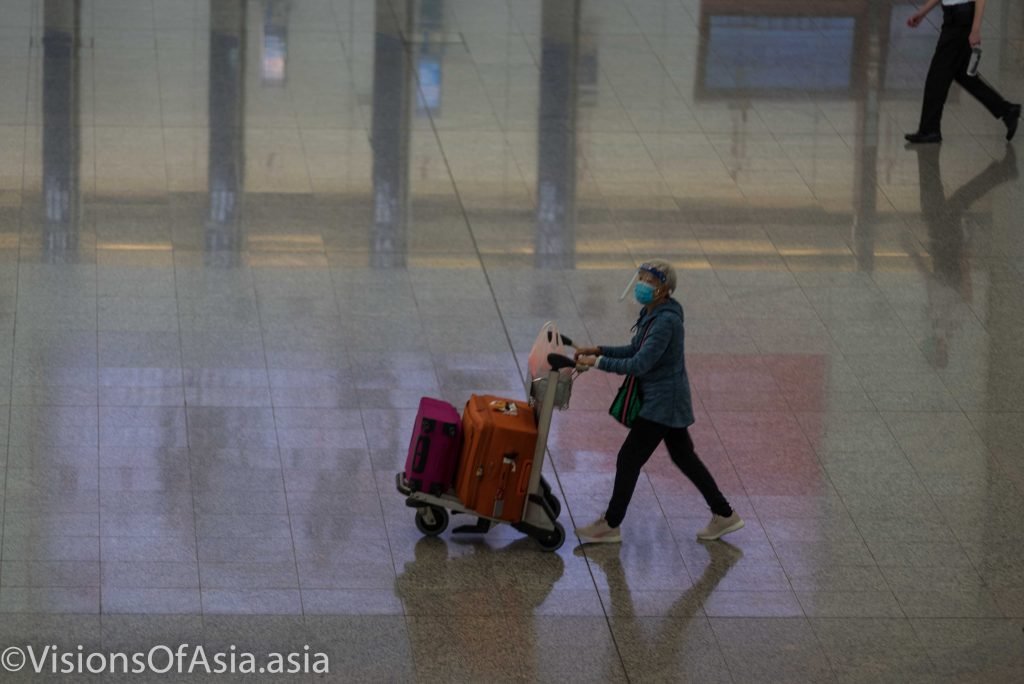Prior to the pandemic, the Hong Kong International Airport was one of the busiest in the world, mainly catering to crowds moving to and from China. It was one of those regional hubs, handling 71.9 million passengers in 2019. Today, with the COVID-19 pandemic, the airport survives by being an airport in minimalist mode.
Entrance restrictions
The main hit for the airport has been the prohibition for any non-resident to enter Hong Kong during the pandemic. As such, only a fraction of its previous passenger numbers can now enter Hong Kong. The pandemic and the testing and quarantine restrictions also obliged the airport to redesign and configure differently its space to allow for testing and the long wait which is often required pending the results. It has also implemented social distancing in its sitting areas.

The dearth of passengers has directly affected all other businesses which now operate only with a fraction of their former turnover, when they are not outright shut down.
In addition, as incoming passengers are sometimes asymptomatic virus carriers or sick, upon arrival they are directed to special lanes and secluded as much as can be from the remainder of the travelers, hence also impacting local businesses.
An injunction still in force
Visiting the airport is not an easy matter, even for Hongkongers. Pursuant to the protests of 2019, an injunction is still in force, prohibiting anybody who is not a passenger, an employee or a member of the media from “loitering” at the airport. As a consequence, nobody can enter if not a passenger or a member of the press. Members of the press themselves, would do well to inform the airport in advance of their plans. I must say that the airport PR team was quite helpful when I requested permission to come and shoot.
Today, police is generally absent, except the normal security forces of the airport, and the barricades of the airport are largely pulled down, but the fact that this injunction is still in force reminds us that Hong Kong is not yet back to normal, not by a long shot.
Social distancing
As all around the world, social distancing has been implemented at the airport, with frequent reminders in places where people are expected to queue.

Queues are pretty much a thing of the past, as all airlines also implement social distancing on board their planes (not to mention people are not that keen to travel in the coronavirus era).

Contrary to the period before the pandemic, the departure hall is pretty much deserted nowadays, and immigration and security checks are a breeze. Airport in minimalist mode it is indeed.
Similarly, businesses that would be thriving before the pandemic looked pretty much deserted these days.

Tourism and travels have an impact beyond their immediate sectors, by feeding several other sectors. Seeing the number of shops closed at the airport gave an idea of the economic impact on the airport and all businesses that relied on it.
In particular, since September, Cathay Pacific has announced layoffs for a part of its personnel and contract changes for those who remained. Those who did not accept the less favourable new contracts were terminated.

Despite some talks of industrial action, in the end, about 98% of the staff accepted the new contracts, confirming the “cultural” aversion of Hong Kong for strikes or collective action.
Coronavirus and safety
Despite the ongoing tensions around new contamination waves, Hong Kong has implemented a rather safe and efficient process for welcoming returning residents (at present, only HK residents are allowed to enter the city).
Incoming travelers are obliged to undergo a coronavirus test at the airport, then wait for the results at the airport (or a designated hotel). Since the month of November, all incoming travelers must await their results at the airport before being transferred to their designated quarantine hotel. Passengers then receive an electronic wristband which is a sort of geolocking device launching an alarm if ever you go out of quarantine.

Once the results are received (and when I visited, pending the results), passengers must head to a centralized quarantine hotel.

Once outside, they must grab a designated bus, and wait into a queue for the transportation. Social distancing was helped with the luggage carts maintaining a safer distance.

Increased efforts on hygiene
Because the pandemic is raging all around Hong Kong, the airport itself has been also putting increased efforts in keeping the premises clean.

Cleaning efforts can be seen all around the airport, especially at locations where people could use the premises.
Meantime, many travelers wore face shields (also a mandatory requirement in countries such as the Philippines).

Importantly, it would seem no ground personnel has been contaminated at the airport since the start of the pandemic, despite several contaminated passengers being often present on some planes. This testifies to the efficiency of their prevention systems.
The joy of “coming home”
While at the airport, I also filmed scenes of the daily life in an airport during a pandemic period. They are regrouped in a larger edit I made for my press agency, but in the meantime, you can watch it below. I found the most striking scene to be that of seeing a pilot jumping with joy when a member of his crew came out from the arrivals.
I should mention that this video was filmed in September 2020, so some scenes are necessarily outdated. For example, as of December, air crew are not allowed to circulate freely out of the airport, but must head directly to a quarantine hotel to await their test results.
Traveling in times of pandemic
Traveling in times of pandemic can be risky and sometimes is nevertheless necessary. More than ever, traveling has made present the need to rely on well-trained staff and quality of welcome. Despite this, quarantines, tests and this kind of difficulty have significantly altered the ease of travel, to the point that nowadays, it is hard to say that traveling is a pure pleasure.
We don’t know how the pandemic will have changed the environment for tourism and leisure travel. But while there is a pent-up demand (Le Figaro was reporting high demands in France for travels to Dubai where the coronavirus pandemic is barely contained – in fact undertested), it remains doubtful whether travel will be allowed to pursue as carelessly as it used to take place before the pandemic. It is likely that we will see the airport in minmalist mode continuing for a while.

